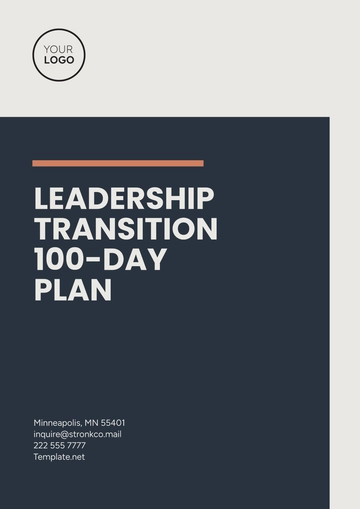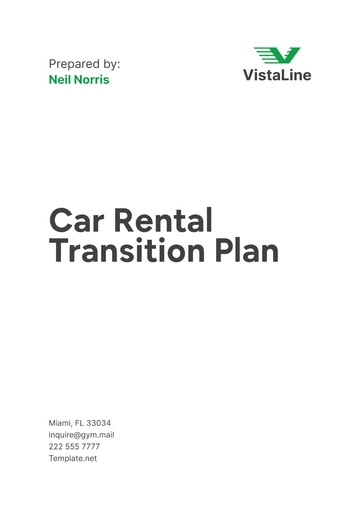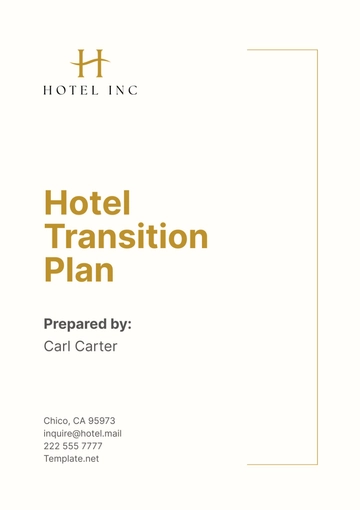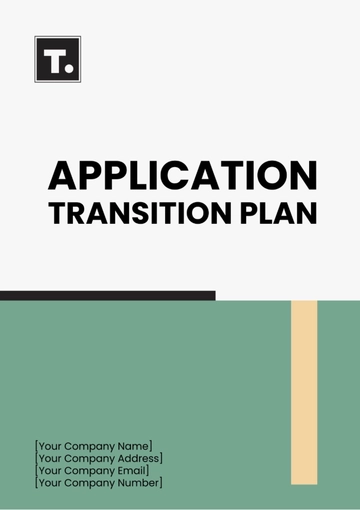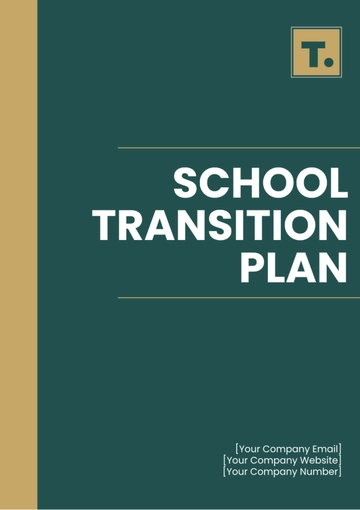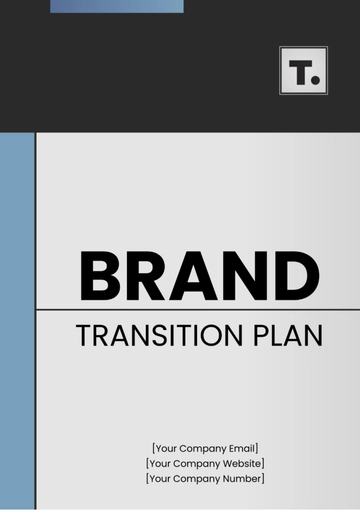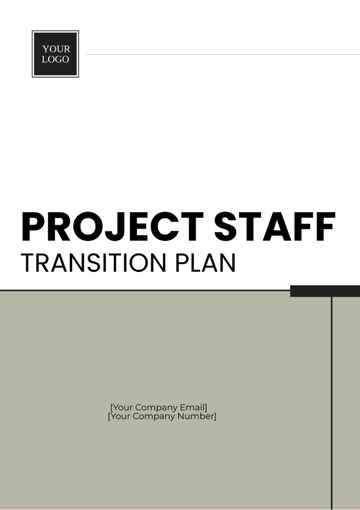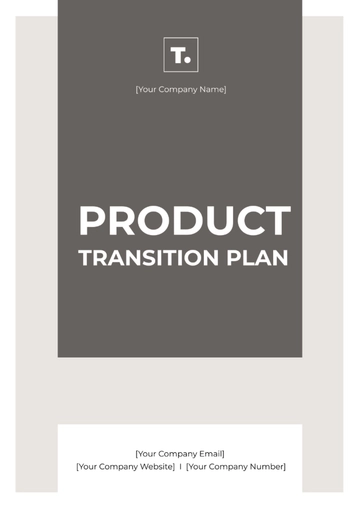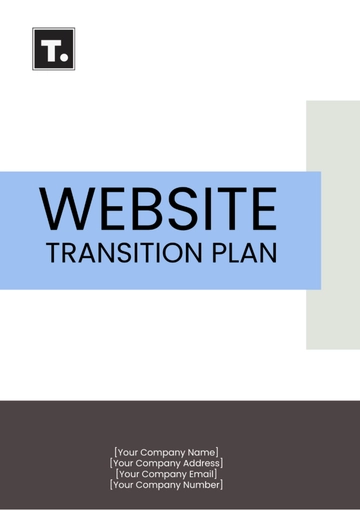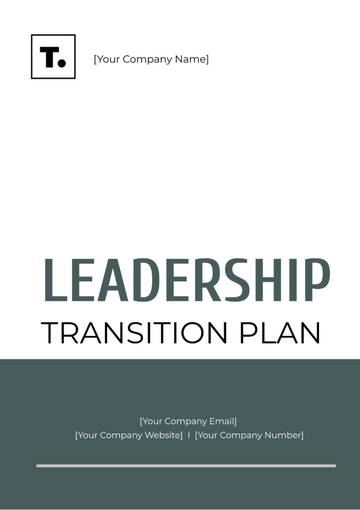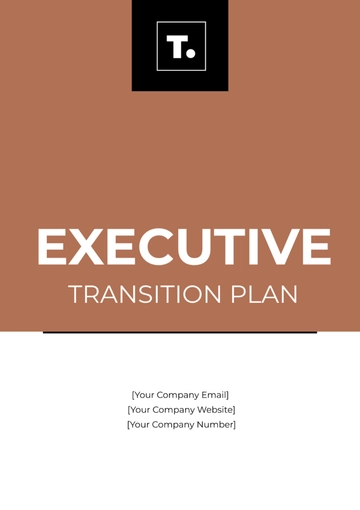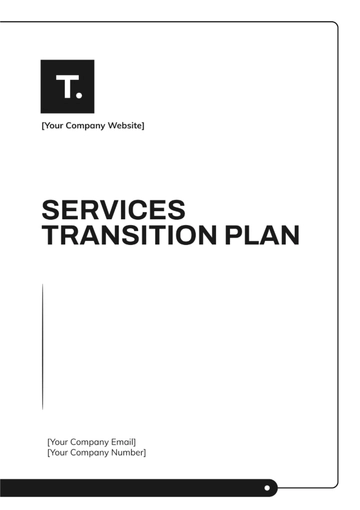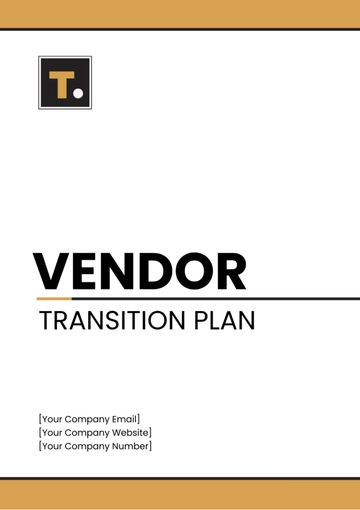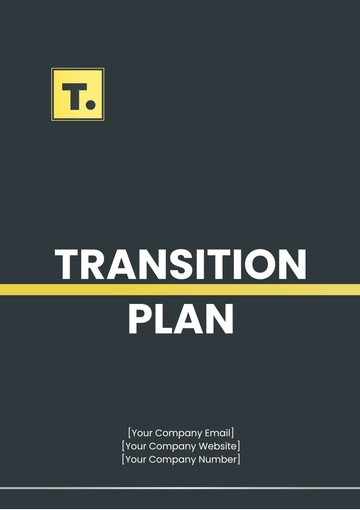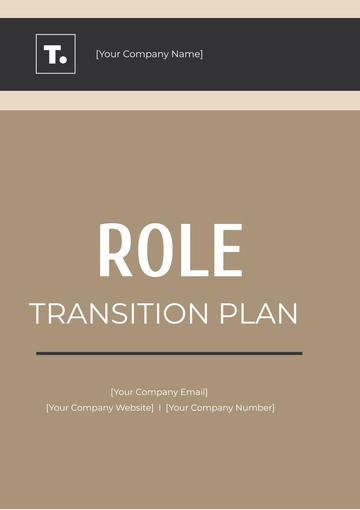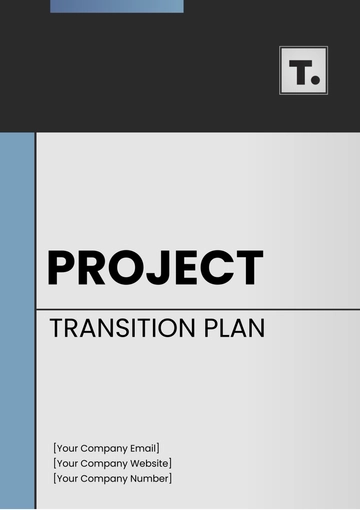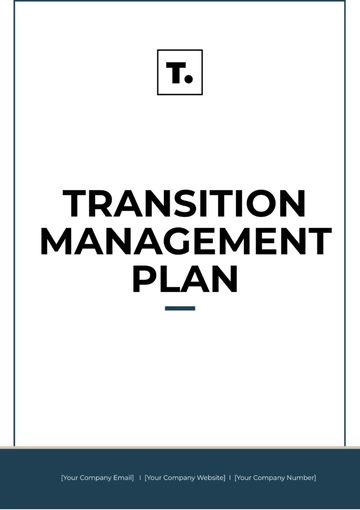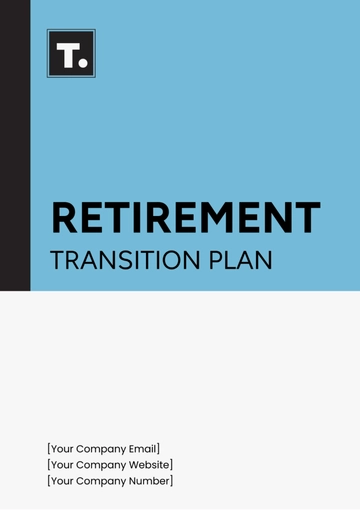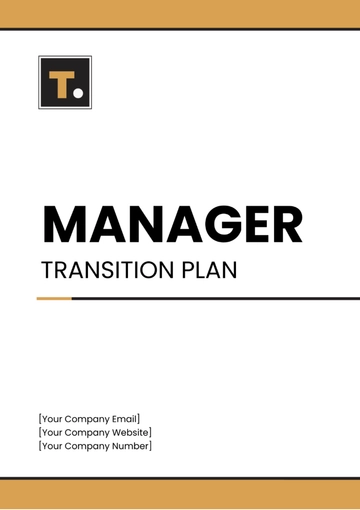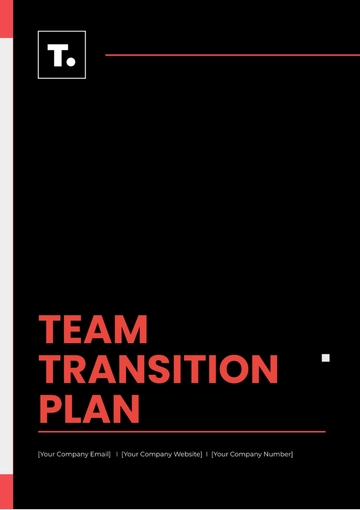Free Individual Transition Plan
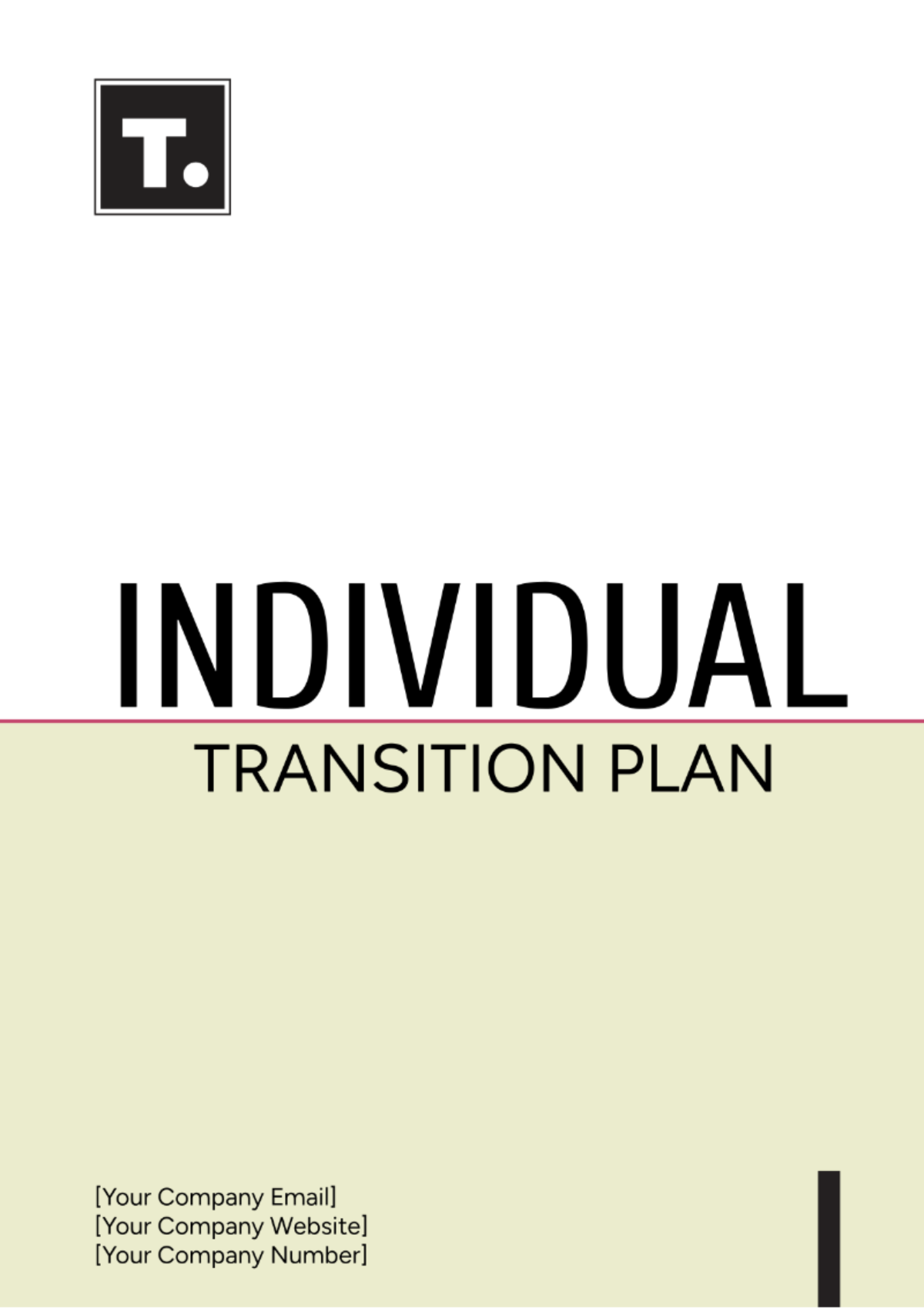
I. Introduction
The objective of our Individual Transition Plan (ITP) is to provide personalized guidance and support for individuals navigating transitions between phases or settings in their lives. Tailored to their unique needs, goals, and circumstances, the plan aims to facilitate a smooth and successful transition. By outlining specific steps and strategies, we aim to empower individuals to effectively manage change and achieve their desired outcomes in education, employment, living arrangements, or other life transitions.
II. Personal Information
Name: | [YOUR NAME] |
Address: | [YOUR ADDRESS] |
Phone Number: | [YOUR NUMBER] |
Email: | [YOUR EMAIL] |
Social Media: | [YOUR SOCIAL MEDIA] |
III. Current Situation Analysis
Provide an overview of the individual's current situation, including:
Current living arrangements: Currently residing in a two-bedroom apartment in downtown Seattle, sharing the space with a roommate. The apartment is conveniently located near public transportation, grocery stores, and other essential amenities.
Current employment status: Working full-time as a marketing coordinator at a mid-sized tech company for the past three years. Recently promoted to the current position, her responsibilities include creating marketing campaigns, managing social media accounts, and coordinating with the sales team.
Current educational status: Completed a bachelor's degree in marketing two years ago from a reputable university in Seattle. Considering pursuing a master's degree part-time while working, currently researching different programs and weighing options.
Other relevant aspects of their life: Enjoy hiking in nearby mountains, experimenting with new recipes, and attending art exhibitions. Actively involved in a local book club and volunteer at a homeless shelter once a month. Recently contemplating adopting a pet from the local animal shelter.
IV. Desired Outcomes
Outline the individual's goals and desired outcomes in different areas of their life:
Education:
The individual's goal in terms of education is to enhance their skills and knowledge in marketing to advance their career further. They are considering pursuing a part-time master's degree in marketing or a related field to gain deeper insights and potentially qualify for higher-level positions within their company or elsewhere in the industry.
Specifics: They aim to enroll in a flexible program that allows them to continue working full-time while pursuing their studies. They are researching universities with reputable marketing programs and exploring options for online or evening classes to accommodate their work schedule.
Employment:
The individual's primary career goal is to continue growing in their role as a marketing professional and to eventually take on more leadership responsibilities within their current company or potentially transition to a higher-level position in another organization.
Specifics: In the short term, they plan to actively seek out opportunities for professional development within their current company, such as attending workshops or seminars related to marketing strategy and leadership. They also aim to network with industry professionals to explore potential career advancement opportunities.
Living Arrangements:
While the individual is content with their current living situation, their goal is to eventually move into their apartment or possibly purchase a home in the future. They value independence and see having their own space as a significant milestone in their personal life.
Specifics: They plan to start saving more aggressively for a down payment on a house or a larger apartment. They are researching different neighborhoods and considering factors such as proximity to their workplace, safety, and access to amenities in their search for a future home.
Other:
The individual has several personal goals outside of their education and career, including maintaining a healthy work-life balance, fostering meaningful relationships with friends and family, and pursuing hobbies and interests that bring them joy and fulfillment.
Specifics: They plan to prioritize self-care by incorporating regular exercise, meditation, and relaxation techniques into their daily routine. They also intend to spend quality time with loved ones by scheduling regular social outings and gatherings. Additionally, they aim to continue exploring their interests in hiking, cooking, and volunteering, as these activities contribute to their overall happiness and well-being.
V. Strategies and Steps
Education | Employment | Living Arrangements | Other |
|---|---|---|---|
Research part-time master's programs. | Enhance skills through online courses. | Explore new living options. | Budget for future goals. |
Seek guidance from academic advisors. | Network for career opportunities. | Discuss preferences with a roommate. | Establish an exercise routine. |
Apply for scholarships. | Update resume and LinkedIn. | Set timeline for decision. | Attend networking events. |
VI. Timeline
Provide a detailed timeline of key milestones and target dates for achieving each goal:
Goal | Steps | Target Date |
|---|---|---|
Education | Research programs, seek advisor guidance | [Date] |
Apply for scholarships | [Date] | |
Employment | Enhance skills, network for opportunities | [Date] |
Update resume, attend events | [Date] | |
Living Arrangements | Explore options, discuss with a roommate | [Date] |
Set decision timeline | [Date] | |
Other | Establish exercise routine, budget plan | [Date] |
Attend networking events | [Date] |
VII. Resources and Support
Identify the resources and support systems available to the individual:
Education | Employment | Living Arrangements | Other |
|---|---|---|---|
Academic advisors | Professional networking events | Real estate websites | Financial planning resources |
Online course platforms | Industry-specific job boards | Local housing agencies | Mental health support services |
Scholarship opportunities | Career counseling services | Roommate agreement templates | Community volunteer programs |
VIII. Monitoring and Adjustment
A. Progress Tracking:
Regular check-ins: Scheduled meetings to discuss progress and challenges.
Progress reports: Periodic updates on achievements and setbacks.
Plan adjustments: Flexibility to modify strategies based on evolving circumstances.
B. Review and Adjustment:
Frequency: Monthly reviews to assess progress.
Criteria: Evaluating goal attainment and identifying areas for improvement.
Communication: Adjustments are communicated through email or in-person meetings.
IX. Conclusion
In conclusion, the Individual Transition Plan (ITP) is a comprehensive roadmap tailored to individual needs, guiding them through various life transitions. The ITP empowers individuals to navigate changes confidently and achieve their educational goals, employment, living arrangements, and beyond by emphasizing personalized strategies and support. Through proactive planning, regular progress tracking, and flexibility to adapt as needed, the ITP ensures a smooth and successful transition, ultimately fostering personal growth and success.
- 100% Customizable, free editor
- Access 1 Million+ Templates, photo’s & graphics
- Download or share as a template
- Click and replace photos, graphics, text, backgrounds
- Resize, crop, AI write & more
- Access advanced editor
Efficiently plan individual transitions with the Individual Transition Plan Template from Template.net. This editable and customizable template offers a structured approach for personal transitions. Easily tailor it to your specific needs using our intuitive Ai Editor Tool. Enhance clarity, maintain productivity, and ensure a smooth transition with this essential resource from Template.net. Simplify your transitions today.
You may also like
- Finance Plan
- Construction Plan
- Sales Plan
- Development Plan
- Career Plan
- Budget Plan
- HR Plan
- Education Plan
- Transition Plan
- Work Plan
- Training Plan
- Communication Plan
- Operation Plan
- Health And Safety Plan
- Strategy Plan
- Professional Development Plan
- Advertising Plan
- Risk Management Plan
- Restaurant Plan
- School Plan
- Nursing Home Patient Care Plan
- Nursing Care Plan
- Plan Event
- Startup Plan
- Social Media Plan
- Staffing Plan
- Annual Plan
- Content Plan
- Payment Plan
- Implementation Plan
- Hotel Plan
- Workout Plan
- Accounting Plan
- Campaign Plan
- Essay Plan
- 30 60 90 Day Plan
- Research Plan
- Recruitment Plan
- 90 Day Plan
- Quarterly Plan
- Emergency Plan
- 5 Year Plan
- Gym Plan
- Personal Plan
- IT and Software Plan
- Treatment Plan
- Real Estate Plan
- Law Firm Plan
- Healthcare Plan
- Improvement Plan
- Media Plan
- 5 Year Business Plan
- Learning Plan
- Marketing Campaign Plan
- Travel Agency Plan
- Cleaning Services Plan
- Interior Design Plan
- Performance Plan
- PR Plan
- Birth Plan
- Life Plan
- SEO Plan
- Disaster Recovery Plan
- Continuity Plan
- Launch Plan
- Legal Plan
- Behavior Plan
- Performance Improvement Plan
- Salon Plan
- Security Plan
- Security Management Plan
- Employee Development Plan
- Quality Plan
- Service Improvement Plan
- Growth Plan
- Incident Response Plan
- Basketball Plan
- Emergency Action Plan
- Product Launch Plan
- Spa Plan
- Employee Training Plan
- Data Analysis Plan
- Employee Action Plan
- Territory Plan
- Audit Plan
- Classroom Plan
- Activity Plan
- Parenting Plan
- Care Plan
- Project Execution Plan
- Exercise Plan
- Internship Plan
- Software Development Plan
- Continuous Improvement Plan
- Leave Plan
- 90 Day Sales Plan
- Advertising Agency Plan
- Employee Transition Plan
- Smart Action Plan
- Workplace Safety Plan
- Behavior Change Plan
- Contingency Plan
- Continuity of Operations Plan
- Health Plan
- Quality Control Plan
- Self Plan
- Sports Development Plan
- Change Management Plan
- Ecommerce Plan
- Personal Financial Plan
- Process Improvement Plan
- 30-60-90 Day Sales Plan
- Crisis Management Plan
- Engagement Plan
- Execution Plan
- Pandemic Plan
- Quality Assurance Plan
- Service Continuity Plan
- Agile Project Plan
- Fundraising Plan
- Job Transition Plan
- Asset Maintenance Plan
- Maintenance Plan
- Software Test Plan
- Staff Training and Development Plan
- 3 Year Plan
- Brand Activation Plan
- Release Plan
- Resource Plan
- Risk Mitigation Plan
- Teacher Plan
- 30 60 90 Day Plan for New Manager
- Food Safety Plan
- Food Truck Plan
- Hiring Plan
- Quality Management Plan
- Wellness Plan
- Behavior Intervention Plan
- Bonus Plan
- Investment Plan
- Maternity Leave Plan
- Pandemic Response Plan
- Succession Planning
- Coaching Plan
- Configuration Management Plan
- Remote Work Plan
- Self Care Plan
- Teaching Plan
- 100-Day Plan
- HACCP Plan
- Student Plan
- Sustainability Plan
- 30 60 90 Day Plan for Interview
- Access Plan
- Site Specific Safety Plan
